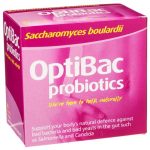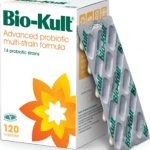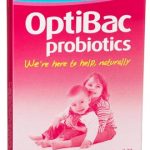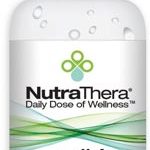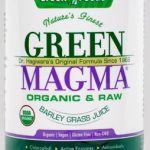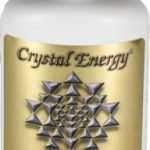Everybody is surely – or, at least, should be – aware of how good vitamins are for their bodies. What fewer people are aware of, though, is that they need to consume an adequate amount of vitamins on a very regular basis not just to keep their body healthy but to keep it functioning properly at all. No question then, vitamins are brilliant; they’re essential. And a great example is one that’s maybe not as heralded as one of two of the others – Vitamin E.
Also known as tocopheral (in all its different naturally-occurring forms), Vitamin E’s a fat-soluble nutrient, which means it can be dissolved by lipids (fats in the body); this feature obviously plays a crucial role in how it operates in the human body, ensuring it helps to maintain eyesight1, aid the tackling of gout2 and proves critical for those suffering from arthritic symptoms3, to name just a few of the things it does.
Vitamin E benefits
But let’s take a closer look at Vitamin E’s multiple health benefits. There really are so many. Perhaps more than anything else, it’s well known for its antioxidant qualities4; contributing greatly to boosting and preserving the health of cell membranes and the tissues of the breast, eyes, liver, skin and testes5. And, like all antioxidants, it’s highly effective at swinging into action and ceasing molecules known as ‘free radicals’ from their harmful behaviour when they’ve found their way into the body6.
What do they do? Well, a free radical is uncharged (it lacks an electron), thus it likes nothing better to than try and chemically ‘complete’ itself by pairing with another electron-carrying molecule; but an antioxidant likes nothing more that stopping a free radical in its tracks – and ensuring its behaviour doesn’t cause oxidative stress7. This, in turn, can help pave the way to serious ailments like neurodegenerative disease8, while free radicals are also associated with arthritis, heart disease, hypertension, senility and even cancer5.
More than just an antioxidant
Vitamin E’s nothing if not versatile, though. For instance, in combination with Vitamin A, it works to reduce cholesterol and prevent general accumulation of fat around the body5. Moreover, owing to its antioxidant properties (which ensure it can minimise clotting and thus aid in the healing process of wounds), it’s felt to be useful when consumed immediately prior to and after surgery – that is, if a daily prescribed dosage is no higher than 200-300 IUs; otherwise it may work towards suppressing healing5.
It’s a vitamin that’s also particularly beneficial for the skin, specifically when it comes to helping to repair burns, lesions and ulcers9, and appears (to some extent) to help relieve menstrual pains – in addition to mitigating other menstrual-related symptoms like headaches, hot flushes and vaginal itching5. And, just to round things out, Vitamin E’s also believed to aid the treatment of leg cramps, muscular dystrophy10, restless leg syndrome11 and diabetes-caused circulatory issues12.
Vitamin E foods and supplements
Quite frankly, any nutritionist is likely to tell you that, ideally, your best sources for Vitamin E are foods rich in the nutrient that you can incorporate into your daily – or, at least, regular – diet. Of particularly high Vitamin E-content are the likes of safflower oil, wheat-germ oil and sunflower oil and seeds, as well as nuts like hazelnuts and walnuts, and vegetables including asparagus, broccoli, celery, cucumber, green peas, kale, spinach and tomatoes5.
However, whether or not you truly can incorporate those foods into your diet is, unfortunately, a moot point; too many of us – for whatever reason – eat too little of truly healthy foods nowadays, with modern food processing techniques and the increasing use of pesticides in farming negatively impacting on even supposedly nutrient-rich foods’ actual nutrient content. In which case, to successfully boost your intake of vitamin E – especially if a medical expert has informed you you’re deficient in it – your best bet is to turn to supplementation. Now, don’t doubt it; you want to go for naturally-derived Vitamin E supplements here, not their often dubious synthetic substitutes (which contain laboratory-manufactured vitamin content that’s usually nowhere near as nutritious). Indeed, among those available through us at The Finchley Clinic, you might well consider the following:
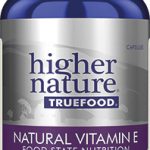
True Food Natural Vitamin E – in addition to Vitamin E, this highly bioavailable supplement contains B vitamins, beta glucans, glutathione, choline, inositol, amino acids and other phytonutrients; it may help protect cell membranes from oxidative damage, support healthy skin as the body ages and, when combined with True Food Super Potency Soyagen, it may help ease menopausal symptoms.
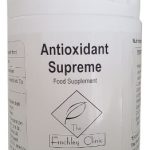
Antioxidant Supreme – an all-encompassing natural antioxidant supplement solution for fighting free radicals and to boost anti-ageing and general health; contains the essential Vitamins A, C and E, as well as the equally critical minerals that are copper, manganese, selenium, zinc and co-enzyme Q10.
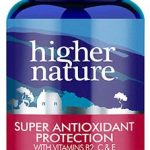
Super Antioxidant Protection – a powerful formula designed to supply the body with the key fat-soluble antioxidant nutrients that are Vitamins C and E (which work to reduce oxidation, not least in the arteries), as well as glutathione (absorbed into the body to form glutathione peroxidase, a major antioxidant enzyme), n-acetyl cysteine that works to maintain glutathione levels and Vitamin B2 that aid its regeneration; additionally, the minerals manganese, selenium and zinc promote antioxidant enzymes throughout the body.
Super Antioxidant Protection – a powerful formula designed to supply the body with the key fat-soluble antioxidant nutrients that are Vitamins C and E (which work to reduce oxidation, not least in the arteries), as well as glutathione (absorbed into the body to form glutathione peroxidase, a major antioxidant enzyme), n-acetyl cysteine that works to maintain glutathione levels and Vitamin B2 that aid its regeneration; additionally, the minerals manganese, selenium and zinc promote antioxidant enzymes throughout the body.
References:
1. Larsen P. D., Mock D. M. and O’Connor P. S. ‘Vitamin E deficiency associated with vision loss and bulbar weakness’. Ann Neurol. 1985 Dec; 18 (6): 725-7
2. Hsu, D-Z et al. ‘Therapeutic Effects of Sesame Oil on Monosodium Urate Crystal-Induced Acute Inflammatory Response in Rats’. SpringerPlus 2, Dec 2013): 659. PMC.
3. Choi E. J., Bae S. C., Yu R., Youn J. and Sung M. K. ‘Dietary vitamin E and quercetin modulate inflammatory responses of collagen-induced arthritis in mice’. J Med Food. Aug 2009; 12 (4): 770-5.
4. ‘Vitamin E: Health Sheet for Consumers’. National Institute of Health. https://ods.od.nih.gov/factsheets/VitaminE-Consumer/. Last updated: May 2016.
5. Haas E. M. and Levin B. ‘Chapter 5: Vitamins: Vitamin E.’ from ‘Staying Healthy with Nutrition: The Complete Guide to Diet and Nutritional Medicine’. Berkeley: Celestial Arts; 2006.
6. Lobo V. et al. ‘Free Radicals, Antioxidants and Functional Foods: Impact on Human Health’. Pharmacognosy Reviews 4.8; Jul-Dec 2010: 118–126. PMC.
7. Jakus V. ‘The role of free radicals, oxidative stress and antioxidant systems in diabetic vascular disease’. Bratisl Lek Listy. 2000; 101 (10): 541-51.
8. Uttara Bayani et al. ‘Oxidative Stress and Neurodegenerative Diseases: A Review of Upstream and Downstream Antioxidant Therapeutic Options’. Current Neuropharmacology 7.1 Mar 2009: 65–74. PMC.
9. Thiele J. J., Hsieh S. N. and Ekanayake-Mudiyanselage S. ‘Vitamin E: critical review of its current use in cosmetic and clinical dermatology’. Dermatol Surg. Jul 2005; 31 (7 Pt 2): 805-13; discussion 813.
10. Berneske G. M. et al. ‘Clinical Trial of High Dosage Vitamin E in Human Muscular Dystrophy’. Canadian Medical Association Journal 82.8; Feb 1960: 418–421.
11. Ayres S. Jr. and Mihan R. ‘Leg Cramps (Systremma) and ‘Restless Legs’ Syndrome — Response to Vitamin E (Tocopherol)’. California Medicine 111.2; Aug 1969: 87–91.
12. Jain, A. B. and Jain V. A. ‘Vitamin E, Its Beneficial Role in Diabetes Mellitus (DM) and Its Complications’. Journal of Clinical and Diagnostic Research: JCDR 6.10; Dec 2012: 1624–1628. PMC.

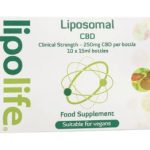
 Obviously CBD works perfectly well by itself. But CBD and Curcmin together are even better. So if you want to enhance the effects further, we recommend combining it with Curcumin which has some quite similar benefits to CBD, especially where is comes to supporting the immune system, cardiovascular health, reducing inflammation and helping with anxiety. (Neuro-chemical research has shown that Turmeric and Curcumin can increase Serotonin, noradrenaline and dopamine levels in the brain).
Obviously CBD works perfectly well by itself. But CBD and Curcmin together are even better. So if you want to enhance the effects further, we recommend combining it with Curcumin which has some quite similar benefits to CBD, especially where is comes to supporting the immune system, cardiovascular health, reducing inflammation and helping with anxiety. (Neuro-chemical research has shown that Turmeric and Curcumin can increase Serotonin, noradrenaline and dopamine levels in the brain).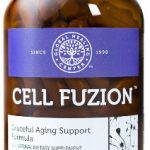
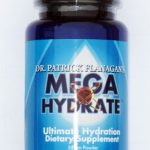
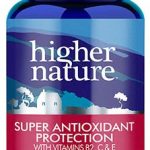
 Mark G. Lester
Mark G. Lester


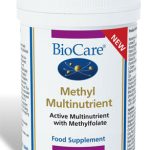
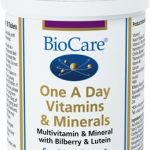
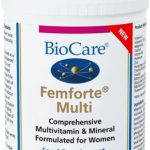
 NADH is one of those natural products I have regarded as ‘special’ ever since I saw it produce remarkable effects for my father in his later years. It has a valid and rightful place in all of the following categories of the web site…
NADH is one of those natural products I have regarded as ‘special’ ever since I saw it produce remarkable effects for my father in his later years. It has a valid and rightful place in all of the following categories of the web site…